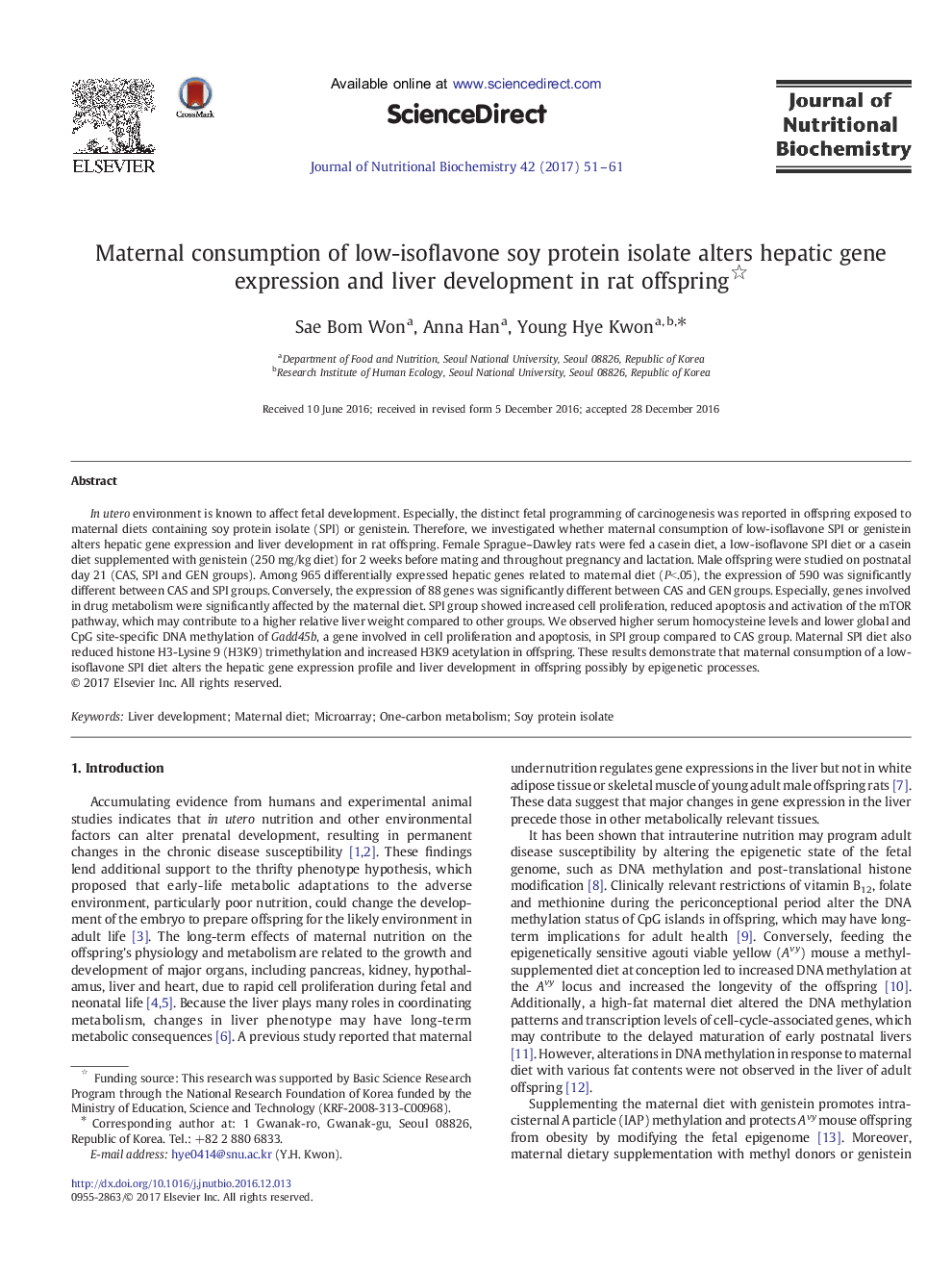| Article ID | Journal | Published Year | Pages | File Type |
|---|---|---|---|---|
| 5512891 | The Journal of Nutritional Biochemistry | 2017 | 11 Pages |
Abstract
In utero environment is known to affect fetal development. Especially, the distinct fetal programming of carcinogenesis was reported in offspring exposed to maternal diets containing soy protein isolate (SPI) or genistein. Therefore, we investigated whether maternal consumption of low-isoflavone SPI or genistein alters hepatic gene expression and liver development in rat offspring. Female Sprague-Dawley rats were fed a casein diet, a low-isoflavone SPI diet or a casein diet supplemented with genistein (250 mg/kg diet) for 2 weeks before mating and throughout pregnancy and lactation. Male offspring were studied on postnatal day 21 (CAS, SPI and GEN groups). Among 965 differentially expressed hepatic genes related to maternal diet (P<.05), the expression of 590 was significantly different between CAS and SPI groups. Conversely, the expression of 88 genes was significantly different between CAS and GEN groups. Especially, genes involved in drug metabolism were significantly affected by the maternal diet. SPI group showed increased cell proliferation, reduced apoptosis and activation of the mTOR pathway, which may contribute to a higher relative liver weight compared to other groups. We observed higher serum homocysteine levels and lower global and CpG site-specific DNA methylation of Gadd45b, a gene involved in cell proliferation and apoptosis, in SPI group compared to CAS group. Maternal SPI diet also reduced histone H3-Lysine 9 (H3K9) trimethylation and increased H3K9 acetylation in offspring. These results demonstrate that maternal consumption of a low-isoflavone SPI diet alters the hepatic gene expression profile and liver development in offspring possibly by epigenetic processes.
Related Topics
Life Sciences
Biochemistry, Genetics and Molecular Biology
Biochemistry
Authors
Sae Bom Won, Anna Han, Young Hye Kwon,
